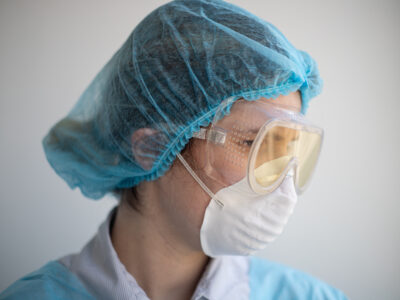Varicose veins, those gnarled, bulging veins that often appear on the legs, affect millions of people worldwide. Beyond being a cosmetic concern, they can cause discomfort and sometimes severe health issues. While various factors contribute to their development, weight is often overlooked. In this article, we’ll delve into the relationship between weight and varicose veins. We will explore how excess pounds can influence vein health and how individuals can mitigate the risk.
Understanding Varicose Veins
Varicose veins happen when the valves within the veins malfunction. This causes blood to pool and veins to become enlarged and twisted. While genetics and lifestyle factors like prolonged standing or sitting play significant roles, weight also emerges as a crucial factor. The varicose veins treatment depends on the symptoms and may include measures such as:
– Lifestyle changes
– Compression therapy
– Medical interventions
A veins doctor is an expert that you can visit if you think you need some professional help.
The Relationship Between Weight and Varicose Veins
Weight is one of those factors that can sneak up on you, affecting more than just your jeans size. Let’s dive into how those extra pounds can impact your vein health.
Why Weight Matters
Having excess weight puts added pressure on your veins, especially those in your legs. Think of it like trying to fit too many things into a suitcase – eventually, something will bulge out. Similarly, the increased pressure from extra weight can cause veins to swell and twist, leading to varicose veins.
The Impact of Obesity
Obesity amplifies the risk of developing varicose veins. Those extra pounds add pressure to your veins and affect how efficiently blood circulates throughout your body. It’s like trying to navigate through a crowded room with too many obstacles. Things get backed up, and circulation slows down, increasing the likelihood of varicose veins.
How Excess Weight Affects Circulation
Your veins are like the highways of your circulatory system, transporting blood back to your heart. But when you’re carrying excess weight, it’s like adding heavy traffic to those highways. The increased pressure makes blood flow harder, leading to congestion and potential vein issues.
Research Insights
Studies have shown a clear connection between obesity and varicose veins. The more weight you have, the higher your risk of developing these vein abnormalities. It’s like stacking bricks on a shaky foundation – eventually, something will give.
Understanding the Link
Simply put, the relationship between weight and varicose veins is like a seesaw. When one side (your weight) goes up, the other (your vein health) goes down. Managing your weight can help balance the equation and minimize the risks of developing varicose veins.
Studies and Evidence
Many studies have established a strong correlation between obesity and varicose veins. Research demonstrates that people with higher body mass indices (BMIs) are more likely to develop varicose veins. The risk increases proportionally to weight gain. Case studies further underscore this association, highlighting the impact of weight loss on improving vein health.
Prevention Strategies
Keeping varicose veins at bay is like preventing a leaky faucet – it’s all about taking proactive steps to avoid problems down the road. Here are some simple strategies to help you keep those veins healthy.
Maintain a Healthy Weight
Just like keeping your car’s gas tank at the right level, maintaining a healthy weight is essential for optimal vein health. Excess weight adds pressure on your veins, making them more prone to swelling and bulging. Staying active and eating healthy can keep your weight checked and reduce your risk of developing varicose veins.
Move More, Sit Less
Your veins love movement just as much as you do. Standing or sitting for very long periods causes blood to pool in your legs and strain your veins. Make it a habit to take short breaks throughout the day to stretch your legs and get your blood flowing. Whether it’s a quick walk around the office or some simple leg exercises at your desk, every little bit helps.
Elevate Your Legs
Give your veins a break by elevating your legs whenever you can. Whether relaxing on the couch or catching some z’s in bed, propping up your legs above heart level helps reduce pressure on your veins and promotes healthy circulation. It’s like giving your veins a mini vacation – they’ll thank you for the break.
Wear Compression Stockings
Think of compression stockings as your veins’ best friend. These snug-fitting garments provide extra support to your veins, helping to improve circulation and reduce swelling. Whether on your feet all day or sitting long, wearing compression stockings can help keep your veins in shape.
Stay Hydrated
Just like plants need water, your veins need proper hydration. Water is like your body’s lifeblood – it keeps everything running smoothly, including your veins. Staying hydrated helps maintain vein elasticity and prevents blood from thickening and clotting. Proper hydration reduces the risk of varicose veins and other vein-related issues. Aim to drink enough water throughout the day, and listen to your body’s thirst cues to ensure you stay adequately hydrated. So, fill that water bottle and keep your veins happy and hydrated.
Dietary Considerations
Your diet isn’t just about satisfying your taste buds. It also plays a key role in keeping your veins happy. Here are some dietary considerations to keep in mind for optimal vein health.
Fruits and Vegetables
Like a colorful bouquet brightens a room, fruits and vegetables add vibrancy to your diet and support your vein health. These nutrient-packed foods are rich in antioxidants and anti-inflammatory compounds. They help reduce inflammation and promote healthy circulation. Treat half your plate with veggies and fruits at each meal to nourish your veins from the inside out.
Whole Grains
Think of whole grains as the sturdy foundation of your diet – they provide essential nutrients and fiber to support overall health, including vein health. Foods like oatmeal, whole wheat bread, and brown rice are rich in fiber, which helps regulate blood sugar levels and promote healthy digestion. Including whole grains in your meals can help keep your veins happy and functioning smoothly.
Lean Proteins
Protein is like the building blocks of your body – it helps repair and maintain tissues, including your veins. Choose lean protein like chicken, fish, tofu, and beans to support vein health without the added saturated fat in red meats. Including protein-rich foods in your diet helps keep your veins strong and resilient against damage.
Healthy Fats
Not all fats are equal – some fats, like the ones in avocados, nuts, and olive oil, are heart-healthy and support vein health. These healthy fats reduce inflammation and improve cholesterol levels, which is essential for optimal circulation. Including healthy fats in your diet adds flavor and nourishment while supporting vein health.
Conclusion
Overweight promotes the development and progression of varicose veins. You can reduce your risk and mitigate symptoms by understanding the mechanisms underlying this relationship. From maintaining a healthy weight and seeking appropriate medical care, proactive measures are key to promoting vein health.

















